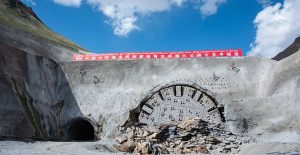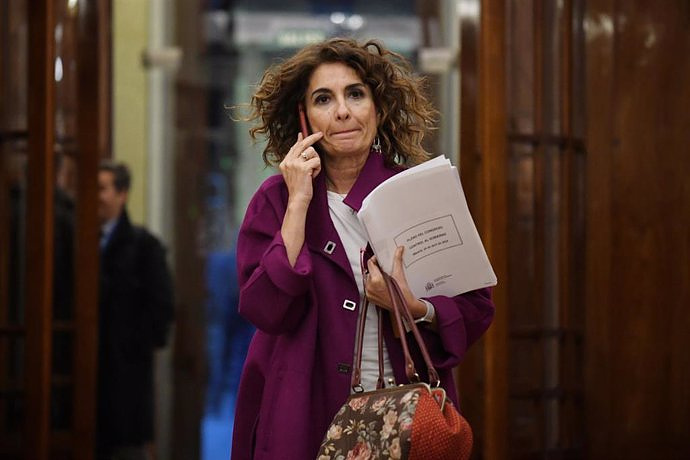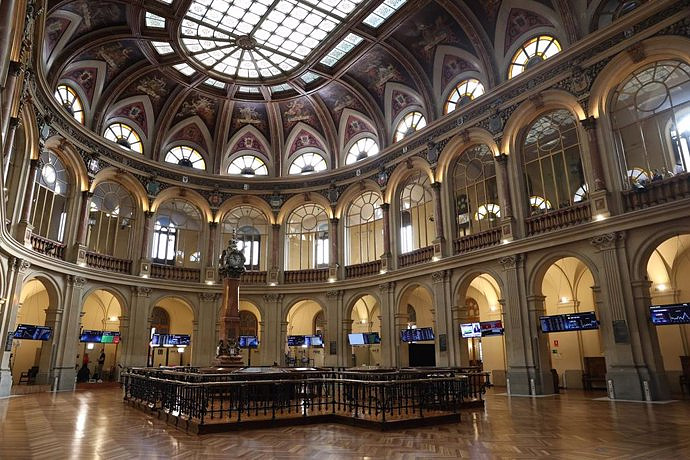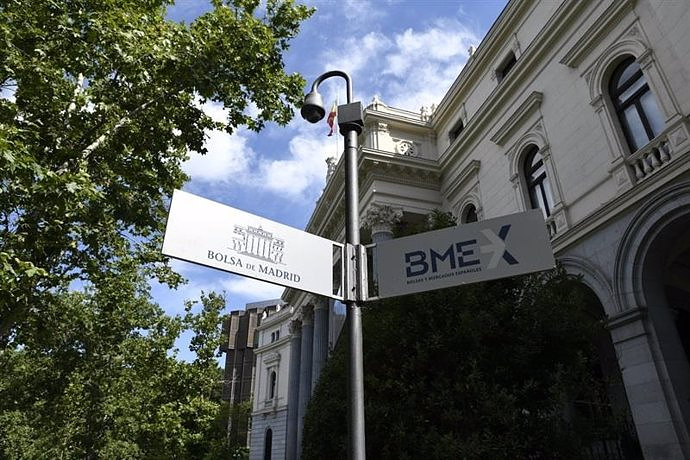They affect that he blames the mafias or defends the rejections at the border from the Spanish side with Moroccan gendarmes, without providing medical aid
MADRID, 21 Sep. (EUROPA PRESS) -
All political groups have harshly criticized the Minister of the Interior, Fernando Grande-Marlaska, on Wednesday for placing the tragedy of June 24 in Morocco when 1,700 migrants staged what he has described as a "violent assault" on the Melilla fence. Specifically, they have made it ugly that he does not give figures of deaths, blames the mafias without evidence or defends rejections at the border, with the help of Moroccan gendarmes on Spanish soil and without providing health care.
"A violent attack on the borders or our agents cannot be assumed," said Grande-Marlaska, for whom the police response was "proportionate." This has earned him the reproach of United We Can and the rest of parliamentary partners, who have recalled that at least 23 migrants died, the "greatest tragedy" or "massacre" on the Spanish border, exceeding the 15 deaths of Tarajal in 2014, when the PP governed.
The reproach of the groups has also extended to references such as "no man's land" in the chronology of events of 24-J, as well as the use of anti-riot material by the police of both countries in what the PNV has described as "dehumanized" intervention, due to the fact that the bodies of migrants were piled up on the ground for hours, without offering them health care or opening the Spanish door to facilitate evacuation.
Another point of unanimous criticism from the partners has been about the Interior's strategy of blaming the mafias for promoting the attempt to enter Melilla --and not the previous raids on the Moroccan side--, as well as not explaining why gendarmes from the neighboring country entered Spain to carry out the rejections at the borders, "summary expulsions" according to the version of EH Bildu.
In his reply to the groups, Grande-Marlaska reiterated that the events of 24-J occurred "mainly" in Morocco, and only "very tangentially" in Spain. In fact, she has joked that some parties resort to the cadastre because they want to "put flags" in the territory of the neighboring country, denying -- as she did at the end of June in Congress -- that Moroccan gendarmes infringed Spanish sovereignty.
Grande-Marlaska has referred to the investigations opened by the Prosecutor's Office and the Ombudsman in the face of repeated allusions to the videos showing Moroccan gendarmes on Spanish soil, which he has related to "eye contact" that, according to him, is punctual and common among police officers who share a border. In addition, he has reiterated that the rejections at the border were carried out in accordance with the legislation.
"What happened is Bolsonaro's Brazil, do not criminalize migrants, they are not violent people; you do terrible damage when you make a far-right speech," ERC deputy María Carvalho has reproached him, for whom the justification for the rejection at the border shows that the PSOE "does not want to put an end to hot returns in the reform of the 'gag law'".
Grande-Marlaska, who has pointed out that it is "false" as the ERC maintains that firearms were used on 24-J, has defended that "no one feels more" the deaths than the Government, the first being President Pedro Sánchez, and recalling that Salvamento Marítimo and the Civil Guard "save lives" every day at sea by rescuing migrants. Having said this, it has justified defending the border if, as happened on 24-J, stones or homemade incendiary devices are thrown.
In addition, the minister has maintained that what happened at the Melilla fence "has nothing to do" with the deaths in Tarajal, recalling that the then PP minister, Jorge Fernández Díaz, manipulated the videos of the police intervention. "Cheer up, beat him in transparency," Bildu deputy Jon Iñarritu has challenged him, encouraging him to publish those videos of the border perimeter.
The PP has defended that it has been the "most loyal group" in its speech in Congress, focusing its criticism on the "opacity" of the Ministry of the Interior by recalling that NGOs raise the number of deceased migrants to 72, compared to 23 which has officially recognized Morocco.
The 'popular' deputy Ana Vázquez has pointed out that the National Human Rights Council of Morocco was the one that denounced that Spain did not open the doors at the border to help migrants. She has also asked if the "information theft" with the Pegasus program is related to the policy followed by the Executive and that has made Grande-Marlaska the "champion" of Europe for setting a record since 1999 in irregular entries of migrants.
For Vox, what Morocco is doing is defined as a "teasing while looting the pocket" of Spain and the European Union, to which Ciudadanos has added that what happened at the Melilla fence was a "systemic failure" of the entire Government.
The deputy of United We Can Enrique Santiago has maintained that the priority is that migrants never die again as happened on 24-J next to the Melilla fence and, immediately afterwards, he has made it ugly that the issue is addressed as if it were a war. "There is no invasion or any problem of sovereignty," he has said.
The minister has closed the intervention in Congress defending his migration management, which according to him is already giving results, also in terms of international protection. "Morocco and Algeria are two strategic partners," he pointed out, pointing out that irregular entries have generally fallen by 35% compared to 2021 if only that of citizens of this second country is observed.

 Exploring Cardano: Inner Workings and Advantages of this Cryptocurrency
Exploring Cardano: Inner Workings and Advantages of this Cryptocurrency Seville.- Economy.- Innova.- STSA inaugurates its new painting and sealing hangar in San Pablo, for 18 million
Seville.- Economy.- Innova.- STSA inaugurates its new painting and sealing hangar in San Pablo, for 18 million Innova.- More than 300 volunteers join the Andalucía Compromiso Digital network in one month to facilitate access to ICT
Innova.- More than 300 volunteers join the Andalucía Compromiso Digital network in one month to facilitate access to ICT Innova.-AMP.- Ayesa acquires 51% of Sadiel, which will create new technological engineering products and expand markets
Innova.-AMP.- Ayesa acquires 51% of Sadiel, which will create new technological engineering products and expand markets Puigdemont believes that Sánchez can present a question of trust and "clarify all doubts"
Puigdemont believes that Sánchez can present a question of trust and "clarify all doubts" RELEASE: Automation Anywhere names Tim McDonough director of marketing
RELEASE: Automation Anywhere names Tim McDonough director of marketing RELEASE: Terra Drone, Unifly and Aloft launch UTM development for AAM aimed at global markets
RELEASE: Terra Drone, Unifly and Aloft launch UTM development for AAM aimed at global markets STATEMENT: The construction of the Gudauri tunnel in the Kvesheti-Kobi Highway Project of the North-Su Corridor has been successfully completed
STATEMENT: The construction of the Gudauri tunnel in the Kvesheti-Kobi Highway Project of the North-Su Corridor has been successfully completed How Blockchain in being used to shape the future
How Blockchain in being used to shape the future Not just BTC and ETH: Here Are Some More Interesting Coins Worth Focusing on
Not just BTC and ETH: Here Are Some More Interesting Coins Worth Focusing on Retrópolis brings the golden age of video games and computing to the UPV
Retrópolis brings the golden age of video games and computing to the UPV Looking for video games that value the neighborhoods of Valencia
Looking for video games that value the neighborhoods of Valencia UPV researchers improve the efficiency of air conditioning systems using a geothermal heat pump
UPV researchers improve the efficiency of air conditioning systems using a geothermal heat pump València is committed to citiverse and smart tourism to be "the reference technological hub of the Mediterranean"
València is committed to citiverse and smart tourism to be "the reference technological hub of the Mediterranean" A million people demonstrate in France against Macron's pension reform
A million people demonstrate in France against Macron's pension reform Russia launches several missiles against "critical infrastructure" in the city of Zaporizhia
Russia launches several missiles against "critical infrastructure" in the city of Zaporizhia A "procession" remembers the dead of the Calabria shipwreck as bodies continue to wash up on the shore
A "procession" remembers the dead of the Calabria shipwreck as bodies continue to wash up on the shore Prison sentences handed down for three prominent Hong Kong pro-democracy activists
Prison sentences handed down for three prominent Hong Kong pro-democracy activists ETH continues to leave trading platforms, Ethereum balance on exchanges lowest in 3 years
ETH continues to leave trading platforms, Ethereum balance on exchanges lowest in 3 years Investors invest $450 million in Consensys, Ethereum incubator now valued at $7 billion
Investors invest $450 million in Consensys, Ethereum incubator now valued at $7 billion Alchemy Integrates Ethereum L2 Product Starknet to Enhance Web3 Scalability at a Price 100x Lower Than L1 Fees
Alchemy Integrates Ethereum L2 Product Starknet to Enhance Web3 Scalability at a Price 100x Lower Than L1 Fees Mining Report: Bitcoin's Electricity Consumption Declines by 25% in Q1 2022
Mining Report: Bitcoin's Electricity Consumption Declines by 25% in Q1 2022 Oil-to-Bitcoin Mining Firm Crusoe Energy Systems Raised $505 Million
Oil-to-Bitcoin Mining Firm Crusoe Energy Systems Raised $505 Million Microbt reveals the latest Bitcoin mining rigs -- Machines produce up to 126 TH/s with custom 5nm chip design
Microbt reveals the latest Bitcoin mining rigs -- Machines produce up to 126 TH/s with custom 5nm chip design Bitcoin's Mining Difficulty Hits a Lifetime High, With More Than 90% of BTC Supply Issued
Bitcoin's Mining Difficulty Hits a Lifetime High, With More Than 90% of BTC Supply Issued The Biggest Movers are Near, EOS, and RUNE during Friday's Selloff
The Biggest Movers are Near, EOS, and RUNE during Friday's Selloff Global Markets Spooked by a Hawkish Fed and Covid, Stocks and Crypto Gain After Musk Buys Twitter
Global Markets Spooked by a Hawkish Fed and Covid, Stocks and Crypto Gain After Musk Buys Twitter Bitso to offset carbon emissions from the Trading Platform's ERC20, ETH, and BTC Transactions
Bitso to offset carbon emissions from the Trading Platform's ERC20, ETH, and BTC Transactions Draftkings Announces 2022 College Hoops NFT Selection for March Madness
Draftkings Announces 2022 College Hoops NFT Selection for March Madness



























